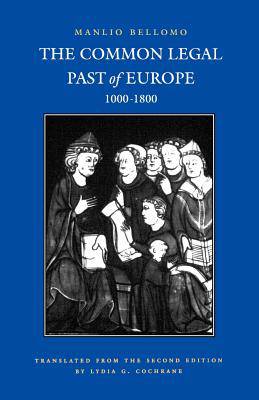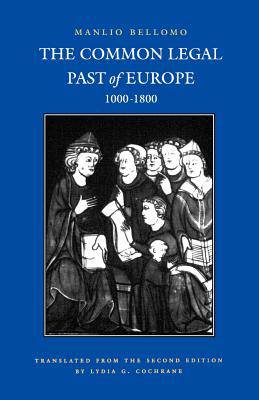
- Afhalen na 1 uur in een winkel met voorraad
- Gratis thuislevering in België vanaf € 30
- Ruim aanbod met 7 miljoen producten
- Afhalen na 1 uur in een winkel met voorraad
- Gratis thuislevering in België vanaf € 30
- Ruim aanbod met 7 miljoen producten
Omschrijving
With a vigor and passion rarely found in a scholarly text, Manlio Bellomo has written a broad history of the western European legal tradition. It is now made available to an English-speaking audience in an elegant and lucid translation from the original Italian.
From the modern age the author looks back to a time when Europe had a common law that transcended national and legal boundaries. This common law, which Bellomo calls the ius commune, developed in the twelfth century from the fusion of Roman, canon, and feudal law. Existing within the framework of the ius commune were the local laws or iura propria--the myriad laws of everyday life, the laws particular to the various kingdoms, principalities, cities, guilds, and secular and ecclesiastical corporations. Bellomo illustrates how for centuries the ius commune permeated every aspect of the iura propria, marking European law indelibly with its stamp. Because the iura propria emerged from the unifying norms and principles of the ius commune, one cannot properly understand local European systems of law without first understanding the ius commune and its influence on the legal concepts, institutions, procedures, documents, and doctrines of the iura propria.
Linking his extensive history to modern-day concerns, Bellomo begins by arguing that the codification that occurred in European countries during the eighteenth and nineteenth centuries has introduced ambiguity, rigidity, and uncertainty into legal systems. A new common law for the whole of Europe, he asserts, would provide a much better vehicle for legal change and development in a time when the economic barriers between European nations are crumbling. Having set the stage for a historical treatment of the topic, Bellomo then describes the beginnings of the ius commune in the schools of the twelfth century, discusses the development of Italian, French, and German iura propria, and sketches the great jurists who gave common law its intellectual vigor--Gratian, Accursius, Odofredus, Cinus, and Bartolus. He concludes with an account of the humanist jurists of the fifteenth, sixteenth, and early seventeenth centuries.
Instructors will find this text ideal for use in courses in legal history, political history, and the history of canon law.
ABOUT THE AUTHOR:
Manlio Bellomo studied under Francesco Calasso at the University of Rome and now teaches legal history at the University of Catania. He is codirector of the International School of Ius Commune in Erice, Sicily, and editor of the journal Rivista internazionale di diritto comune.
Specificaties
Betrokkenen
- Auteur(s):
- Vertaler(s):
- Uitgeverij:
Inhoud
- Aantal bladzijden:
- 252
- Taal:
- Engels
- Reeks:
- Reeksnummer:
- nr. 4
Eigenschappen
- Productcode (EAN):
- 9780813208145
- Verschijningsdatum:
- 1/01/1995
- Uitvoering:
- Paperback
- Formaat:
- Trade paperback (VS)
- Afmetingen:
- 142 mm x 215 mm
- Gewicht:
- 362 g

Alleen bij Standaard Boekhandel
Beoordelingen
We publiceren alleen reviews die voldoen aan de voorwaarden voor reviews. Bekijk onze voorwaarden voor reviews.







